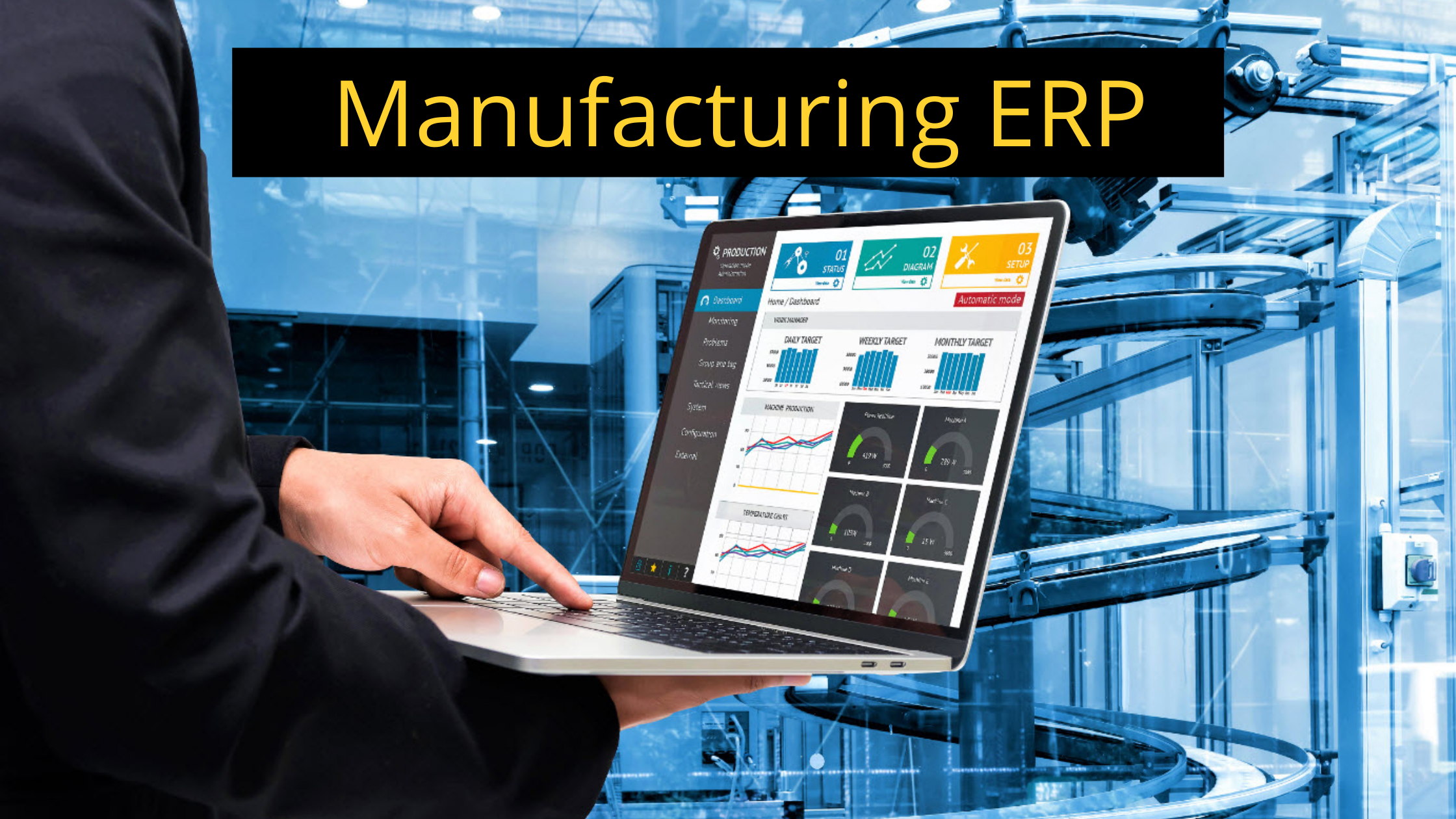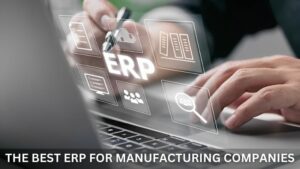Manufacturing ERP Software: A Software solution for Manufacturing Industry to upscale business.
Manufacturing ERP is a software application designed for the manufacturing industry to maintain daily activities of business operations that help to automate business efficiency. It provides insights and controls resources, all in one database that integrates various departments such as supply chain management, manufacturing, accounting, marketing, sales, and human resources. ERP Software is a centralized database that maintains and records all the data. This software can be assessable to all employees in an organization. ERP helps in financial saving and time by providing a centralized database that increases the visibility of information regarding manufacturing, supply chain management, and distribution of finished goods.
In manufacturing industries, ERP helps to overcome the following issues as follows
- Quick response at the client end for managing better customer relationships.
- Maintain a day-to-day record of all the operations & processes.
- Enhance production efficiency, and increase productivity which leads to company profit.
- Identification of production planning and resource deficiencies in manufacturing units.
Key Integrations for Manufacturing ERP Software.
ERP Software encompasses a software system built to organize, manage, and update the ongoing business operations on single software. Manufacturing ERP is the bedrock of the manufacturing business. This software not only controls and streamlines business operations but also allows the industry to pre-plan for upcoming batches, maintain stock of raw materials and give a quick response at the client end.
ERP integrates the functionalities of every department in the industry such as inventory, production, sales, finance, quality, supply chain management, accounts, and sales. Let’s have a look at tools that integrate with Manufacturing ERP.
- Manufacturing Execution System (MES)is a tool that enables controlling, tracking, and documenting the process of raw materials to finished products.
- Fleet Management SoftwareFMS allows manufacturing businesses to manage and complete an array of operations.
- Warehouse Management SoftwareWMS helps deliver the product on time, record in and outbound warehouse transfers, execution, and generate reports. It eliminates data redundancy.
Benefits of Automation in the Manufacturing Industry.
Manually managing manufacturing units is a difficult task that every industry face. Automation is the use of advanced systems like computers, software, and IT for managing machines and operations to replace manpower. The purpose to automate a business is to improve the efficiency of manufacturing production. Automated manufacturing units perform activities like material handling, assembling, production, and inspection with minimum resources and human interference. Manufacturing ERP adds value to the manufacturing business. 
- The first step in industrial automation is to invest in a Manufacturing ERP that helps in upscaling manufacturing businesses manage every process and each operation in a streamlined manner.
- The manufacturing industry has encountered increasing issues of labor shortage. By implementing automation in the manufacturing business this issue can be overcome.
- Automation helps workers’ safety because the manual assembly of parts and components can be dangerous, and some manual operations or processes are dangerous to mankind.
- It helps cost-cutting industries not need to hire many employees.
- The advantages of automation show in overall productivity, increase sales, better employee efficiency, improved working procedure, and a well-structured streamline.


